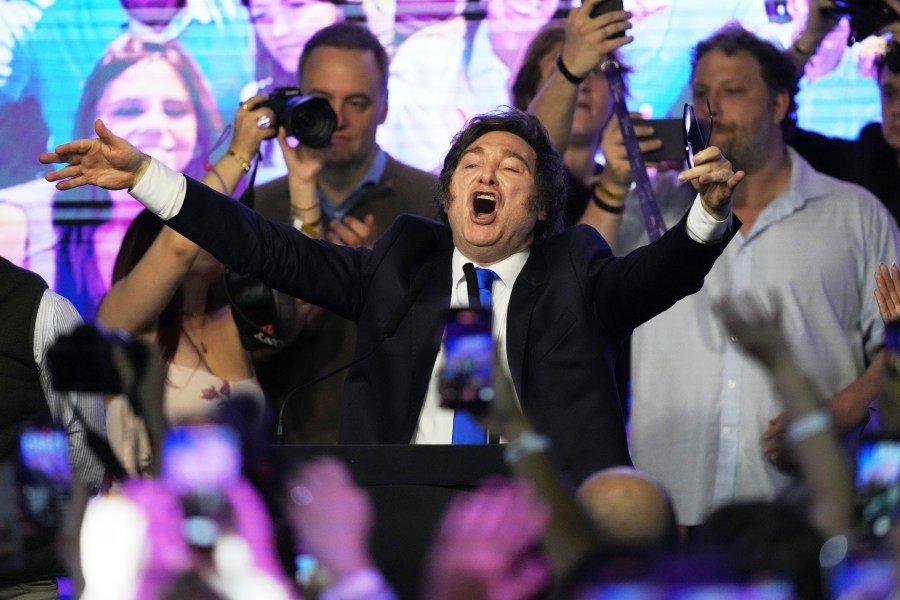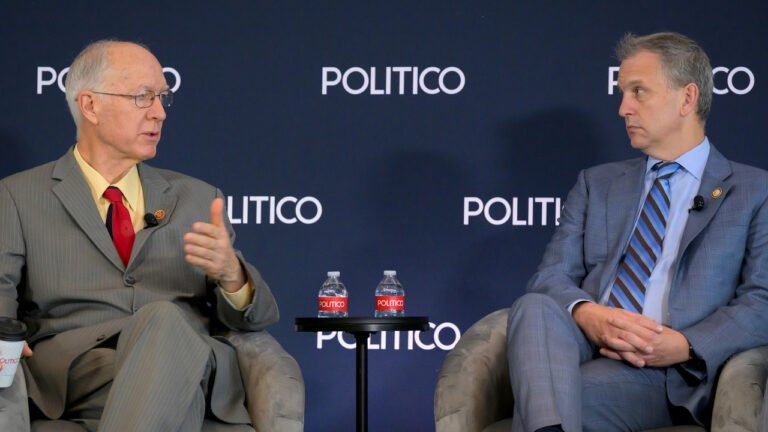
Sunday’s midterm elections in Argentina produced a stunning victory for President Javier Milei’s La Libertad Avanza party. The party doubled its representation in Congress, meaning Milei’s party and allies secured at least one-third of the seats in both chambers — the critical threshold to preserve the president’s veto power and defend his sweeping decrees.
Libertad Avanza garnered 41 percent of the votes cast for members of the Chamber of Deputies and Senate. Milei now has enough legislative support to keep his vetoes from being overturned and a stronger hand as he moves ahead with his campaign to downsize the state and deregulate the economy.
What has been the winning formula for Milei and his party since he took office? In terms of governance, the winning formula has consisted of budgetary and spending reforms, inflation control, poverty reduction, and tax and regulatory reform. Milei’s implementation of economic reforms since taking office has resulted in Argentina’s first fiscal surplus in more than 14 years, a reduction from triple-digit hyperinflation to a mere 32 to 47 percent annual inflation, and the implementation of over 1,246 deregulatory actions.
Despite Milei’s laudable achievements in the economic realm, and despite U.S. government and private sector commitments of up to $40 billion (if needed), Argentina will require additional funds on a long-term and sustainable basis. Where to turn for that investment? Multinational firms.
Often overlooked in discussions of economic policy — particularly bilateral economic relations — is the role of foreign companies. Argentina presently has more than 300 U.S. companies operating in the country, with the U.S. its largest foreign investor. The total stock of foreign investment exceeds $130 billion and includes such firms as Disney, Google, Nike, Dow, Chevron and Bank of America. Even that number is an underestimation, for it excludes franchising, licensing, and royalties, thus leaving out firms like McDonald’s, Burger King, Pure Fitness, KFC, and Bosch Auto Service.
Also excluded are start-ups, digital nomads, and non-registered foreign businesses.
The good news for Argentina is that the foreign direct investment landscape has improved markedly in Milei’s first two years, driven by reforms, newly liberalized policies, and incentives aimed at attracting large-scale investments. The leading sectors remain manufacturing, mining (especially lithium and hydrocarbons), energy, and technology. Comparatively, Argentina remains less competitive than Brazil and Mexico but it offers distinctive advantages and dramatic recent improvements in economic fundamentals following significant reforms.
Of special interest to multinational firms currently operating or considering operations in Argentina are the tax and investment promotion changes implemented by the Milei administration. These include eliminating or reducing 22 different types of federal taxes. The World Bank approved a $300 million project in July 2025 to modernize Argentina’s tax administration system, supporting the government’s broader tax policy reforms.
As for investment promotion, one of the administration’s flagship initiatives is the Large Investment Incentive Regime, designed to attract significant foreign and domestic investment. The scheme offers comprehensive incentives, including:
- 30-year regulatory stability guarantees for tax, customs, exchange, and regulatory matters
- Tax exemptions and foreign exchange advantages
- Access to international arbitration through institutions like ICSID
- Preferential treatment for investments exceeding $200 million in specified sectors
As of mid-2025, the Large Investment Incentive Regime has attracted 11 investment proposals representing $15.5 billion in combined pledges, with four projects already approved. The program covers eight key sectors: forestry, tourism, infrastructure, mining, technology, steel, energy, and oil and gas.
In essence, the Milei administration has achieved remarkable short-term stabilization of Argentina’s economy through fiscal discipline, monetary restraint, and extensive deregulation. Despite the pain inflicted by his austerity measures, many Argentines recognize the need and are still willing to back his libertarian experiment. Next up are his privatization agenda, labor market reform and tax system overhaul.
The midterm elections in Argentina dealt a body blow to the old Peronist kleptocracy. But many Argentines may have voted for Milei and his party as the lesser of two evils. It is now up to the president and his allies to ignite enthusiasm among those voters in future elections. Achieving solid, sustainable accomplishments that foster economic democracy in Argentina is definitely the winning formula.
Jerry Haar is a professor of international business at Florida International University and a visiting faculty fellow at Georgetown University’s Baratta Center for Global Business. His latest book, co-authored with Ricardo Ernst and Santiago Gutierrez, is “Winning in the New Global Landscape.“


